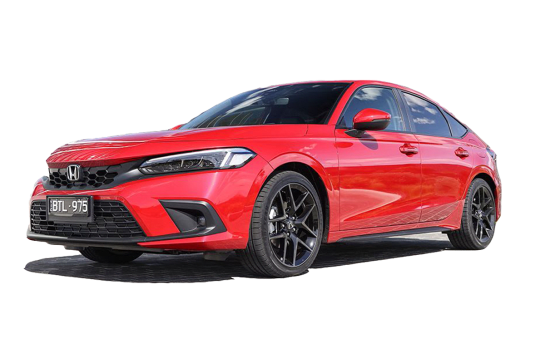
Suzuki Baleno VS Volkswagen Golf
Suzuki Baleno
Likes
- Cheap to buy
- Light
- Big boot
Dislikes
- Expensive servicing
- Cheap interior
- Dull
Volkswagen Golf
Likes
- Superb engine
- Nice to drive, even around town
- Good space utilisation
Dislikes
- Too much road noise
- Annoying touchscreen
- Pricey
Summary
Suzuki Baleno
The fact of the Suzuki Baleno's existence is one of the more puzzling features on the automotive landscape. It's a car that pits itself against all manner of worthy competition - some of it exceedingly so - in the small hatch segment.
People still buy what the industry calls light cars (in ever-diminishing numbers) so perhaps Suzuki thought offering two would be a good idea, as its Swift occupies the same patch of sales ground in this city-sized segment.
In this part of the market, you've really, really got to want it. You need to be stylish, sophisticated and packed with tons of safety gear if you've any hope of so much as laying a fingernail on the Mazda2. Or, let's face it, be dirt cheap to counter Yaris and (the soon to depart) Accent.
It's all the more puzzling because Suzuki does interesting cars like the Jimny, Swift, Vitara and Ignis. And the oddball S-Cross (RIP).
The Baleno seems far too tame, timid and, well, blergh. But according to VFacts, Suzuki shifts at least a hundred of these per month, sometimes over 200.
| Safety rating | |
|---|---|
| Engine Type | 1.4L |
| Fuel Type | Regular Unleaded Petrol |
| Fuel Efficiency | 5.1L/100km |
| Seating | 5 seats |
Volkswagen Golf
In a world where hatchbacks are being cancelled left, right and centre, it was super refreshing to get into the Volkswagen Golf GTI hot-hatch recently.
I’d driven other Mk 8 Golf models including the R flagship wagon, but this was my go in the car I’d long considered to be the best Golf for the money.
But with prices continuously cruising north - this car is now a $54,990 prospect before on-road costs - does it still make dollars and sense? And what’s it like to live with in the daily grind?
| Safety rating | |
|---|---|
| Engine Type | 2.0L turbo |
| Fuel Type | — |
| Fuel Efficiency | 7L/100km |
| Seating | 5 seats |
Verdict
Suzuki Baleno6.5/10
The Baleno is a disappointingly dull car from a company that makes plenty of un-dull cars. I suppose it's prudent for Suzuki to at least try to look like a grown-up, but as this car proves, there's no fun in that.
It will no doubt be dependable and if kept in metropolitan areas, will serve its owners well. But it's lacking in key safety gear, the servicing is a bit on the stiff side and the interior feels cheaper than most of its competitors.
And on top of all that, it feels really old.
Is there anything tempting about the Baleno? Tell us what you think in the comments below.
Volkswagen Golf8/10
The Volkswagen Golf GTI is still a standard-setter when it comes to the “do it all” style of sporty hatch.
I wish the media screen was simpler, and that it wasn’t so loud inside on rougher road surfaces that are so common around Australia, and I wish it was cheaper, too.
But if you can justify the cost, and you want a five-door hatch with plenty of power and presence, then the Golf GTI could well be the go. But I’d also personally be checking out the Cupra Leon, which I think looks better and has a bit more individual appeal.
Design
Suzuki Baleno6/10
Suzuki says the Baleno's look reflects the brand's 'Liquid Flow' design language, but I'd much prefer it if they had stuck with the angular design of its other cars. Almost all of them are far better looking, or at least characterful.
The Baleno's recent facelift, which is mostly a new front bumper and a headlight tweak, was probably supposed to improve the looks but instead the car now appears to have had some fillers pumped into its cheeks.
It's not an attractive car from the front, with the grille overpowered by the lower fascia's sheer breadth. The rear and profile are fairly anonymous and to ensure its anonymity, there is little in the way of adornment. Looks basic, is basic.
Step in to the spacious-for-its-size cabin and you'll be greeted with the usual Suzuki staples of super-hard plastics, hardy carpets and tough cloth trim.
There is a little curvaceousness to the dash design but it just feels a bit half-hearted until the curves run into the centre console's alien-with-flappy-ears effect. There's nothing wrong with it but it does look dated.
Volkswagen Golf
You can tell it’s a GTI at a glance, and that means it’s off to a good start. There’s the telltale red grille strip, sitting proud above a very aggressive lower bumper with chequered-flag style daytime running lights.
In profile there’s a GTI badge on the front fender, and I think the 19s on this particular car sit a lot nicer than the ‘Richmond’ 18-inch rims on the standard car. There are red calipers, too, and tinted rear glass.
At the rear there is a minimalist approach to the badging - just the three important letters ‘GTI’ below the VW emblem, which doubles as the boot opening handle. The lower bumper features a pair of round exhaust tips, which poke out a bit more than you might expect.
The inside has the iconic - but not identical between generations - tartan seat trim, and I love it. Got a few really nice compliments on the design, which is called ‘Scale Paper’, in this gen and spec.
Otherwise, it’s a pared back affair, and you could be sitting in any other high-grade Golf.
Practicality
Suzuki Baleno7/10
Here's some excellent news - there is plenty of space in the Baleno's tiddly sub-four metre frame. The awkwardly-proportioned body has delivered good space for front and rear passengers who would be happier on more comfortable seats, but for city driving, they do just fine.
If you're up to around 180cm tall, there's enough space for you and your legs in the back and headroom is adequate.
Storage is a limited to a couple of open trays but you can put your phone in the same place as the USB port. You get two cupholders at the front and if you don't mind losing the rearmost of your storage trays, the back seat passengers can share it as a solitary cupholder. Each door has a very handy bottle holder that will secure a 1.5-litre vessel.
The boot is a good size for the segment at 355 litres to begin with and 746 with the 60/40 split fold rear seat folded down.
Volkswagen Golf
You’ll fit more in the Golf hatch than you might expect. I took myself, my daughter and both my parents for a few-hour drive in it, and there were no complaints about comfort or space.
The 374-litre (VDA) boot space was large enough to fit the pram, a few shopping bags and a baby backpack, though for families with a baby or toddler, longer trips with more baggage might prove a squeeze. If you need more space and don’t have a child-seat in the back, you’ll get 1230L (VDA) with the back seat folded down. And there’s a space-saver spare under the floor.
The back seat is easily roomy enough for smaller adults and kids, and I could even slot in behind my own driving position (I’m 182cm/6’0” tall) with enough room. Three across will be a squishy, but it is possible.
There are dual ISOFIX and three top-tether points for kid seats, plus there’s a fold-down armrest with cup holders, big door pockets for a bottle or loose items, and a few pockets on the front seat-backs, too. There are USB-C ports (x2), and directional air-vents.
Up front you’ll find similar storage - cup holders between the seats, a pair of big cubbies in the doors, and additional holsters for a phone (with wireless charging) and 2x USB-C ports, a centre console bin, and reasonable glovebox.
The usability of the media system is not terrific. There are menus upon menus, and nothing as intuitive as it could be because so much of it is touchscreen-based. There are only a few hard buttons below, and then you still need to use the screen to get where you need.
I also think the much-criticised lack of knobs and buttons for volume and temperature control is an issue. There are controls below the screen, but they aren’t illuminated, and they aren’t always the most receptive.
I also didn’t love the haptic touch buttons on the steering wheel. I kept bumping buttons inadvertently when driving enthusiastically.
Price and features
Suzuki Baleno7/10
For $16,990 drive away, Suzuki opens the range with this GL. That scores you 15-inch steel wheels with less than fetching hubcaps, a six-speaker stereo, air-conditioning, reversing camera, remote central locking, cruise control, sat nav, auto halogen headlights, power mirrors and windows, and a space-saver spare.
A 7.0-inch touchscreen that you can find in almost every Suzuki handles the sat nav and entertainment duties. It's not a bad piece of hardware except it doesn't have a proper volume knob, but more than makes up for that with Apple CarPlay and Android Auto. Then ruins it again with tinny sound. You can't have it all, I suppose.
Volkswagen Golf
As I mentioned, the 2023 VW Golf GTI lists at $54,990 (all prices listed are MSRP, or before on-road costs). So, on the road, you’re up over sixty grand. That used to be more than enough for a Golf R, but times they are a-changin.
And don’t go thinking you’re getting 15-inch touchscreens and leather trim for that money, either. The Golf GTI runs the iconic tartan cloth trim as standard, has the typical exterior styling treatment with red highlights, and it has LED headlights, keyless entry and push-button start, electric heated folding side mirrors, standard-fit 18-inch alloys and adaptive chassis control dampers.
Inside you’ll find a 10.0-inch touchscreen with sat nav, digital radio, wireless Apple CarPlay and Android Auto, a six-speaker stereo, wireless phone charging, auto-dimming rearview mirror, a digital instrument cluster, front, side and rear parking sensors with auto-parking, sports front seats with manual adjustment, leather-wrapped steering wheel,
The car I drove had the $2500 Sound and Style pack, which adds 19-inch wheels and Hankook Ventus S1 Evo3 (235/35/19) tyres as well as a Harman Kardon stereo with subwoofer, plus a head-up display.
If you want leather trim, you’ll have to option the Luxury Package ($3900) which adds Vienna leather upholstery, a panoramic sunroof, heated front seats, electric driver’s seat adjustment and electric driver’s lumbar adjustment, too.
Colour options include the no-cost Pure White and Moonstone Grey, Atlantic Blue metallic, Dolphin Grey metallic, and Deep Black pearl. Only the eye-catching Kings Red metallic costs $300 more.
Rivals for the VW Golf GTI include the Hyundai i30 N (from $46,200 for the manual; $49,200 for the dual-clutch auto), Renault Megane RS Trophy (from $62,300) and the mechanically related Cupra Leon VZ (from $52,990).
Under the bonnet
Suzuki Baleno6/10
You'll not need to hold on to your hat in the Baleno. The 1.4-litre naturally-aspirated four-cylinder musters up 68kW at 6000rpm and 130Nm 2000rpm earlier. It's not a lot, but at 915kg, the Baleno isn't doing too badly.
There's an old relic in the transmission department. Power reaches the front wheels via a four-speed automatic transmission. There aren't many of those left in circulation on new car forecourts.
You can't buy a Baleno with the plucky 1.0-litre turbo anymore, which is a bit of shame.
Volkswagen Golf
You know the VW Golf GTI formula. Punchy engine, front-wheel drive.
In this iteration, the engine is a 2.0-litre four-cylinder turbo-petrol with 180kW of power (from 5000-6200rpm) and 370Nm of torque (from 1600-4300rpm).
This generation doesn’t come with the option of a six-speed manual transmission like GTI models before it - instead, you get a seven-speed dual-clutch automatic transmission as standard.
The 0-100km/h claim is 6.4 seconds. But in some situations it feels faster than that.
Efficiency
Suzuki Baleno7/10
Suzuki says you'll get 5.4L/100km on the combined cycle, which isn't too far off reality, our time delivering around 6.6L/100km. Which was remarkable in itself given how much throttle you have to use to move along.
Another bonus is that even though the fuel tank is just 37 litres, you won't spend half your life filling up.
Volkswagen Golf
The official combined cycle fuel consumption figure is 7.0 litres per 100 kilometres. That’s what you should be able to achieve across a mix of driving.
During my time in the Golf GTI, I did a few hundred kilometres of mixed driving, and saw a real-world return of 8.1L/100km. Respectable, I think. Undoubtedly it would be higher if all you do is drive hard - but this test was about how usable the car is in normal life.
It has a 50-litre fuel tank that needs to be filled with 95RON premium unleaded at a minimum.
Driving
Suzuki Baleno6/10
Most Suzukis are fun to drive even if they're on the slow side. The Jimny bounces around like a fat puppy full of sugar, the Swift is a good laugh and the Vitara is quite handy. The Baleno fails to be any of these things, but it's not all bad news.
The first thing you'll notice is the very light steering that makes a high-pitched noise when you turn it.
The second thing you'll notice is the whine coming from the transmission or somewhere very like it, no matter how much throttle you have on. It shifts smoothly enough, though, which isn't very often given the lack of gears.
It's not often I yearn for a CVT, but that might be the better transmission for this car. Yes, I just checked outside for airborne pigs, too.
The Baleno does feel like it teeters a little on its skinny, high profile tyres. It's not a car to drive with enthusiasm, but if you're happy enough with its almost-lively off-the-mark acceleration, which then fades away rapidly, you'll be perfectly happy.
It's not very quiet, though, with plenty of noise passing through the trademark thin sheetmetal and sparingly damped shell. It's light, but you can hear why - there's not much sound-deadening to weigh it down.
On the open road the Baleno further reinforces its credentials as a city car - it wanders around on the tyres, the steering loses all its feel and the wind noise means you have to turn up the volume to either drown it out or make yourself heard.
Volkswagen Golf
This was an urban test first and foremost, and the Golf GTI still is one of the most liveable sporty hatchbacks on the market.
There are things you will need to contend with - the amount of coarse-chip road road that intrudes into the cabin is downright nasty at times, and even in the most comfortable drive mode it’s quite firm over Sydney’s pockmarked city roads - but otherwise, this thing is great.
The steering has heaps of weight to it, and is super direct. The heftiness of it might take some getting used to, especially when negotiating tight parking spaces, but there’s always the auto-parking function if you’re nervous.
Now, the adaptive chassis control dampers will be stiffer or softer depending on the drive mode you choose. There are Eco, Comfort, Sport and the configurable Individual setting, and when my family was on board I had the car in Comfort mode. Again, no complaints about ride comfort.
In Sport mode, it is sharper and lumpier, but never lacking in control or refinement. Yes, you do feel sharp edges, and it might be too edgy for full-time use, but it really does help the car feel more confident and planted.
The engine is terrific. It has more than enough grunt to make easy work of daily duties, and you needn’t fear about whether you’ll have enough squirt to make it for overtaking moves. It has an abundance of torque and the linear way in which it builds power from low in the rev range is superb.
I also had no complaints about the dual-clutch auto transmission. The action of it can take some getting used to at lower speeds, where it can feel like it’s slurring a bit, but it really is a super gearbox, with snappy shifts at speed and smooth changes when you want them.
Safety
Suzuki Baleno6/10
Sadly, the Baleno is not among the frontrunners for safety features. It does arrive with six airbags, ABS, stability and traction controls and a reversing camera but misses out on every advanced safety feature we expect to see at least one or two of, such as AEB.
There are two ISOFIX points and three top-tether restraints for the baby and child seats.
The Baleno does not have an ANCAP safety rating.
Volkswagen Golf
The Golf 8 range scored a maximum five-star ANCAP crash test rating in 2019. Standards have changed a bit since then, but it still has plenty of standard active safety tech.
The list includes forward AEB with pedestrian and cyclist detection, plus it has blind-spot monitoring, rear cross-traffic alert, reversing collision avoidance, lane keeping support, adaptive cruise control, a reversing camera and front and rear parking sensors.
If you’re waiting for a new VW Golf GTI, the brand has confirmed that from November production, the R-Line, GTI and R models pick up a front centre airbag. That’ll make the tally seven airbags, with dual front, front side and full-length curtains fitted to all earlier and future models.
Ownership
Suzuki Baleno7/10
Suzuki has joined the mainstream market herd with a five year/unlimited kilometre warranty for private use (ie not Uber) but there isn't even a solitary year of roadside assist.
Happily, since we last drove the Baleno, service intervals on the 1.4-litre have improved to 12 months/15,000km (rather than the previous 10,000km) and the company also offers five years of capped pricing up to 90,000km.
Services come in between $239 and $499, unless you've somehow covered 90,000km inside the five year window, and then it blows out to $649. That last figure aside, you can expect to pay $1635 over five years (or $2045 if you go nuts on the mileage). It's not especially cheap.
Volkswagen Golf
Buying a VW? You’ll score a five-year/unlimited kilometre warranty. That’s good, but not as good as Skoda, MG, GWM Haval or Kia. But none of those brands have a real hot-hatch like this.
Servicing is every 12 months/15,000km. There’s a capped-price plan or “Care Plan” prepay packs for three years/45,000km ($1600) or five years/75,000km ($2800). Choose the latter and you’re saving heaps over pay-as-you-go ($786, to be precise).
You get a year of roadside assistance included, but that renews each time you service your car with VW.
































